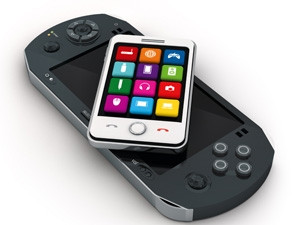
EA Labels president Frank Gibeau told IGN in an interview that its developers are redesigning traditional video games for mobile devices.
This follows the video game developer revealing it was working on Frostbite games for both the Android and iOS platforms in May. The official Frostbite Web site revealed a mobile-optimised version of the game engine called Frostbite Go.
Gibeau told IGN that he is positive about the future of mobile gaming and believes in the near future, the next wave of tablets and phones would have near Xbox 360 or PS3 capabilities in terms of graphics.
"Some of our engine technology that used to be console-specific now can, with modifications, be able to power games on tablets and on phones in the near future. We're just getting ready for that," he noted.
Gibeau did, however, point out that the transition to mobile would not be so simple. "You have to redesign the game. You can't just bring it over and have a virtual D-pad on the tablet. It doesn't work. You have to re-architect it around touch, voice and camera."
He added that the EA developers are using the same ingredients in a different way. "Our teams are having a lot of fun with that, re-imagining an experience on a tablet using the same graphics and assets in some ways, but completely remixing the meal."
Mobile gaming scene
According to the App Annie and International Data Corporation (IDC) Portable Gaming Report for the first quarter of 2013, both iOS and Google Play saw growth in mobile game downloads, as well as consumer spending.
iOS came out on top in terms of spending on games, with the report also indicating Google Play would likely catch up and surpass Apple in gaming-optimised handhelds.
IDC's gaming research manager, Lewis Ward, says: "While the most popular games and their business models are quite distinct, Nintendo and Apple were surprisingly close in terms of aggregate consumer spend on game software in the fourth quarter of 2012."
Meanwhile, recent reports suggest Google is developing a gaming console and smart watch based on its Android operating system.
Sources familiar with Google's plans told the Wall Street Journal last month that the search giant intends to design and market the devices itself and would likely release one of them closer to the end of the year.
Google declined to comment on the reports.
Analysing Android
Hans Haupt, owner and senior editor of gamers Web site Vamers, says while Google is on a winning streak with its Android operating system, it might not work as well as a serious gaming console.
"The biggest problem with Android at the moment is the fragmentation of the Android ecosystem. This fragmentation makes it difficult for developers to code games for the Android platform, because catering for a variety of hardware platforms, like Samsung's Galaxy range, takes a lot of resources that most independent developers do not have."
He adds that coding for only the latest Android operating system means only the latest phones will be able to run the games. "This in return effectively reduces the number of people who can purchase the developed game."
Haupt says in order for Google to compete in the mobile video games arena, which Apple is currently dominating, it would have to reduce platform fragmentation as much as possible. "Until then, Google should continue to simply enhance the Android platform."
Haupt says Android's biggest advantage and hurdle is its open platform. "Being open source means that anyone who knows how to code can create a video game for the Android platform. However, Android, like Windows Phone and iOS, is still governed by hardware limitations.
"On the other hand, users also have access to the way the operating system works and could, potentially, hack trial games to become 'free' or use their skills for more nefarious means, such as stealing source code."
Share